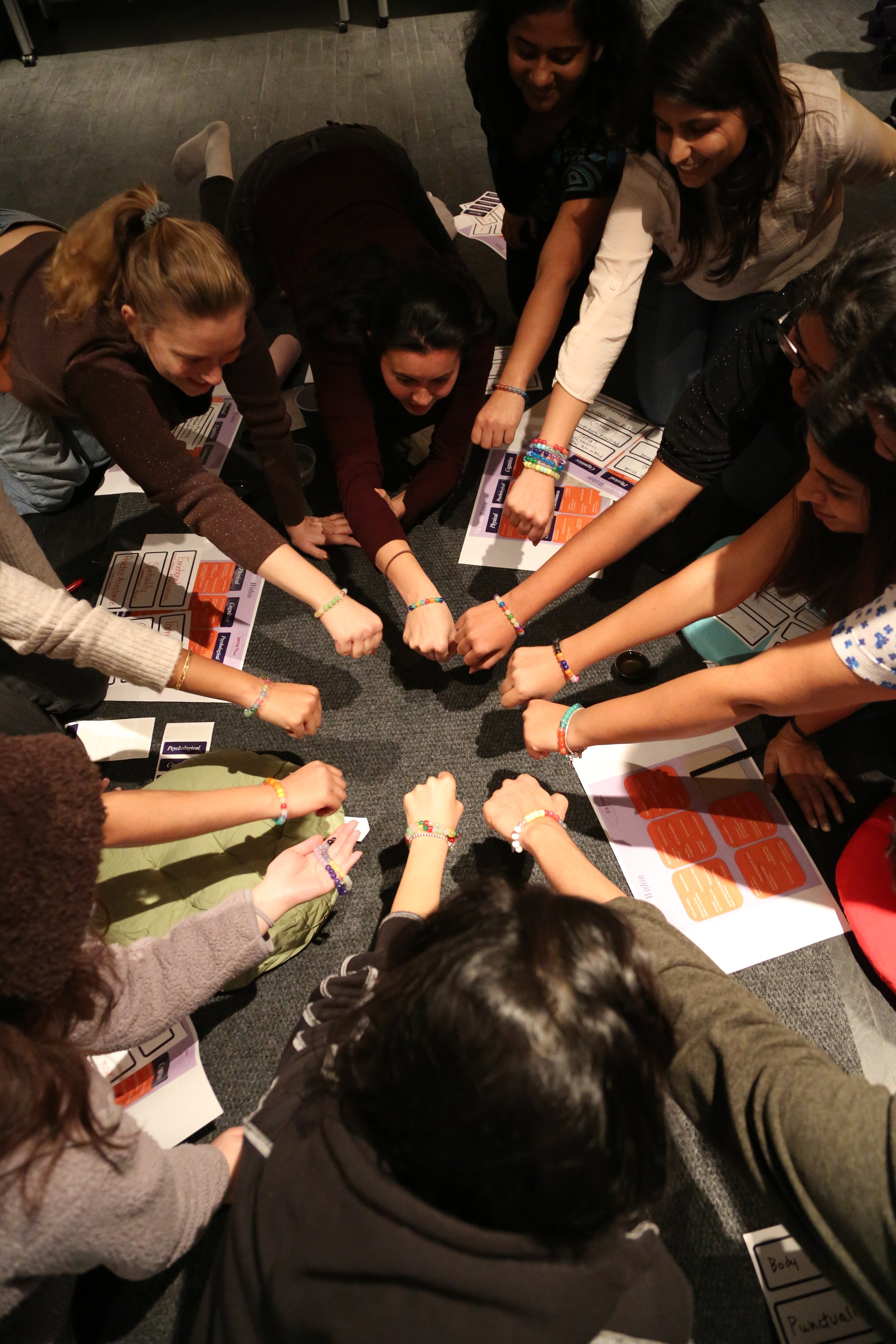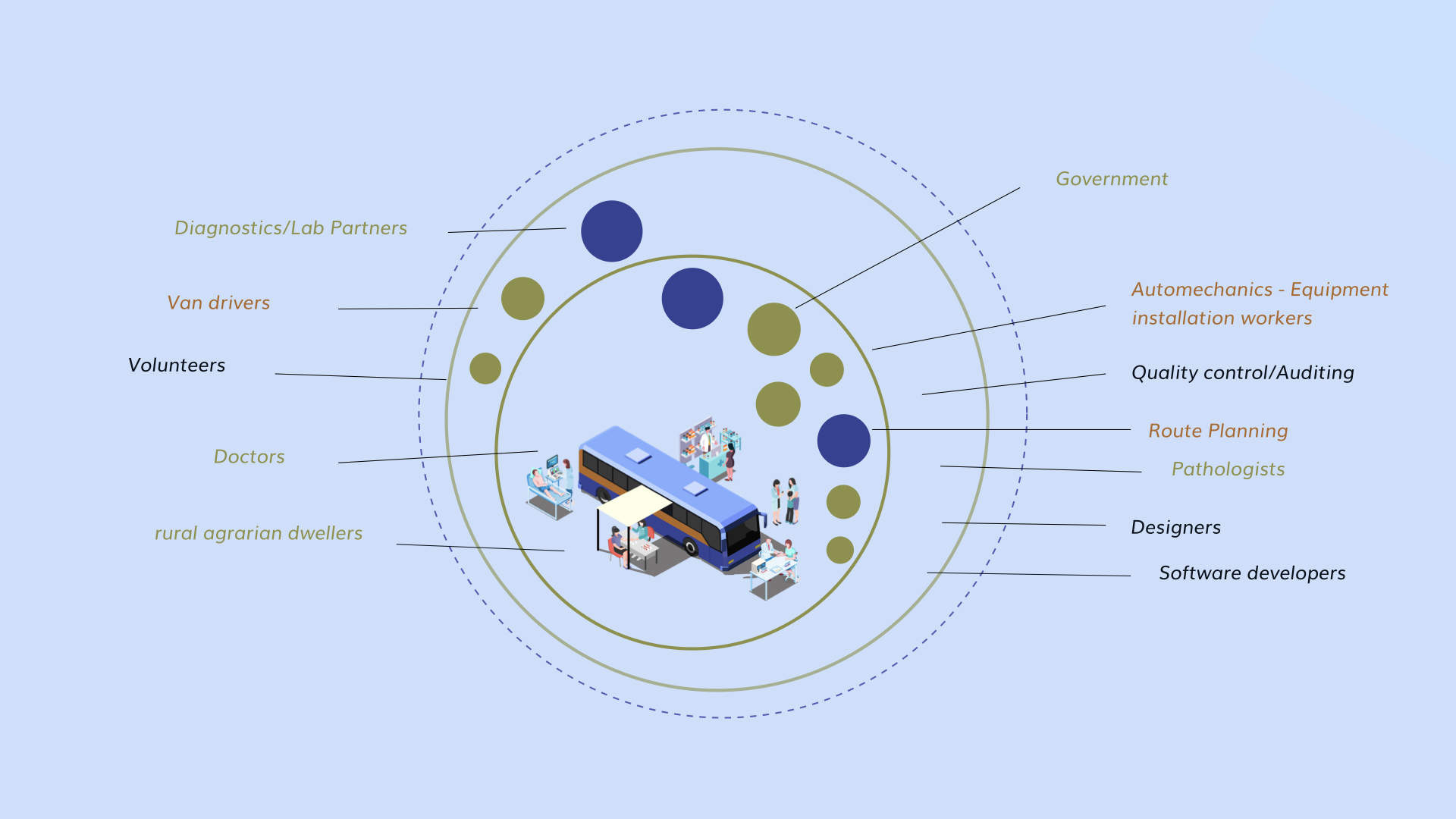Choosing to Stay : Helping Communities Combat Climate Migration
Rohitha Remala's thesis, Choosing to Stay: Helping Communities Combat Climate Migration, explores various design interventions catered to helping communities stay and rebuild their communities rather than having them migrate—by assisting them in reassessing the values in their native places. Her thesis focuses on how climate-induced slow violence (a term coined by Rob Nixon in 2011) acts as a psychosocial element of human well-being and focuses on deriving interventions for individuals, families, and communities, thereby providing a solution for a systemic issue through a system of designs.
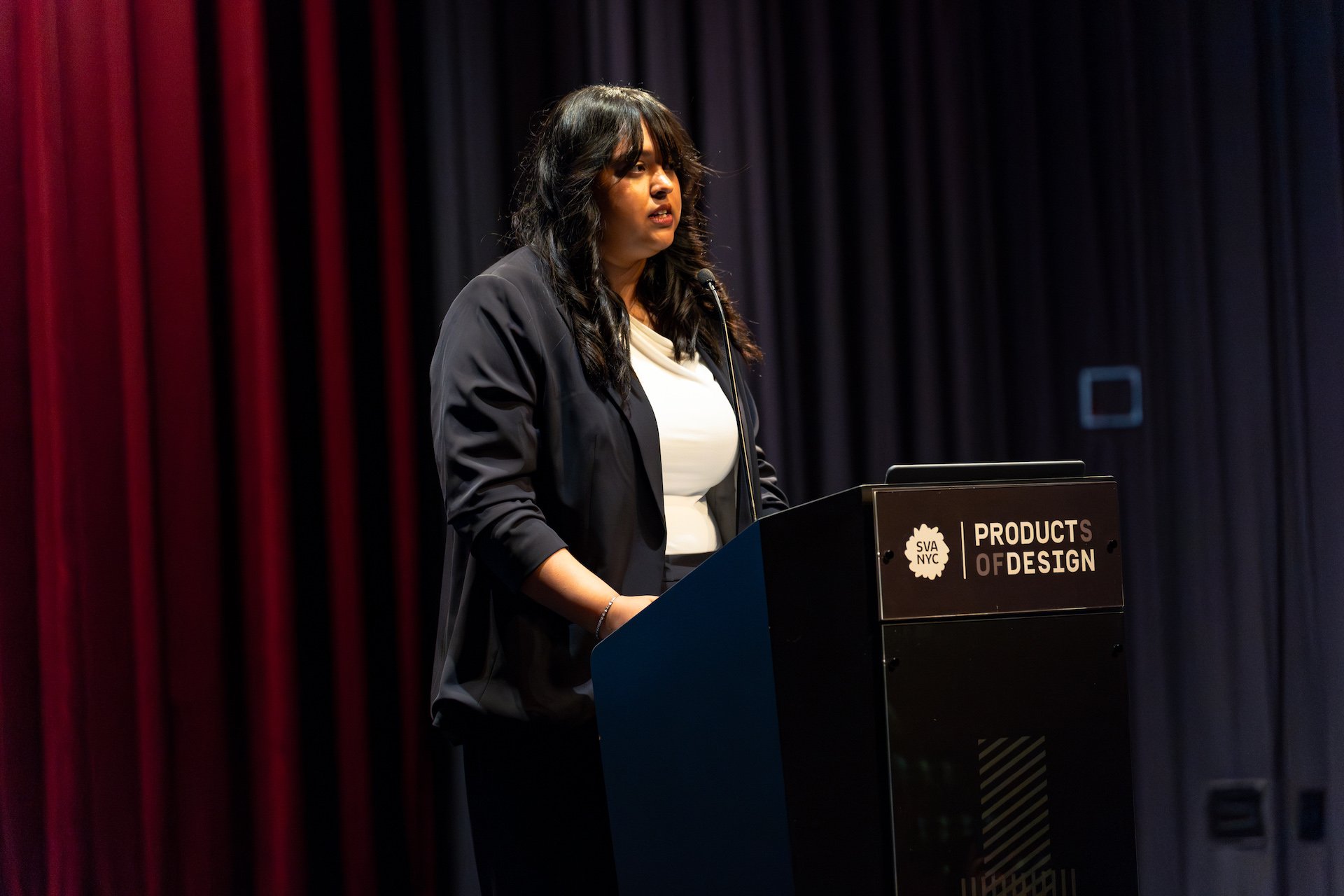
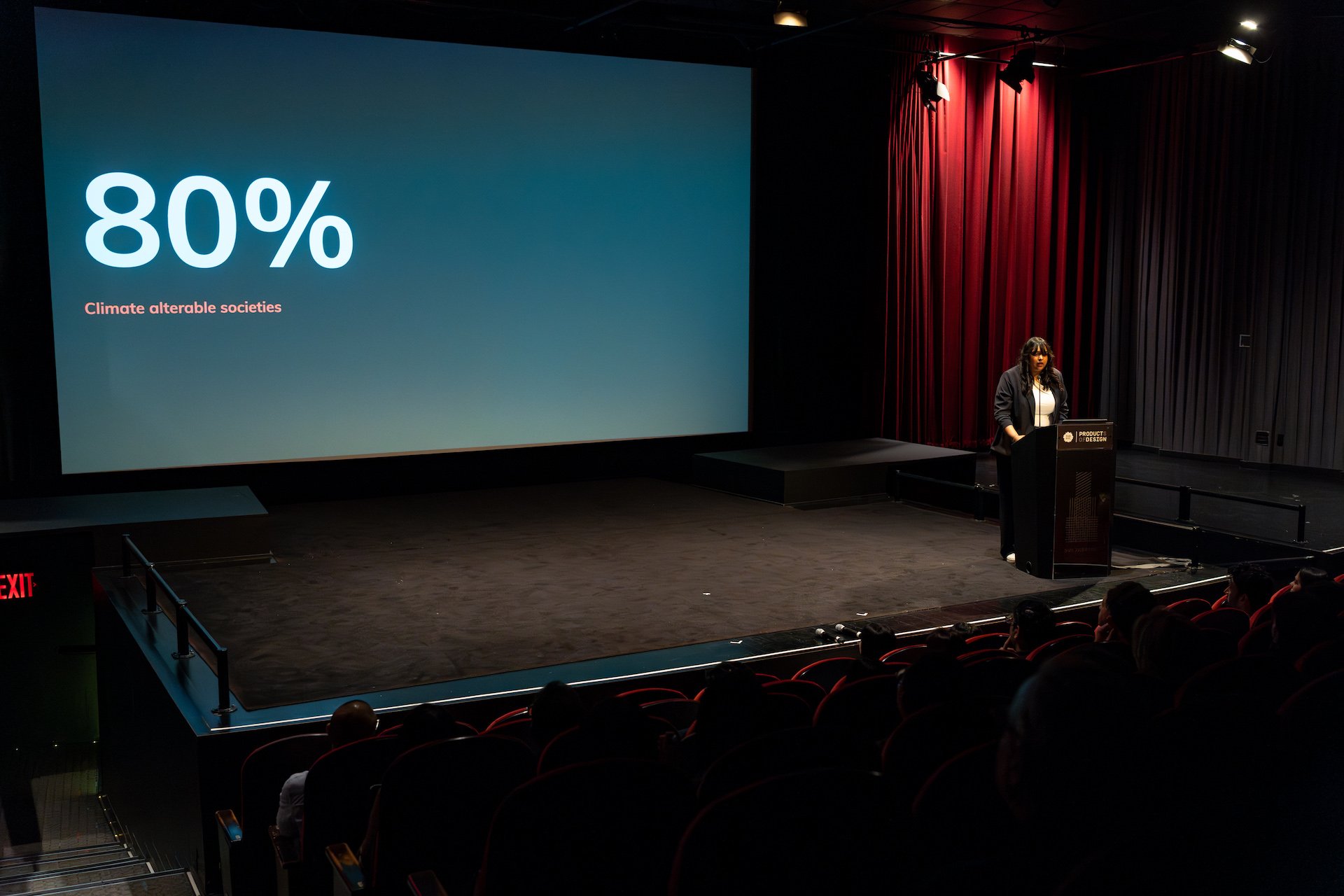
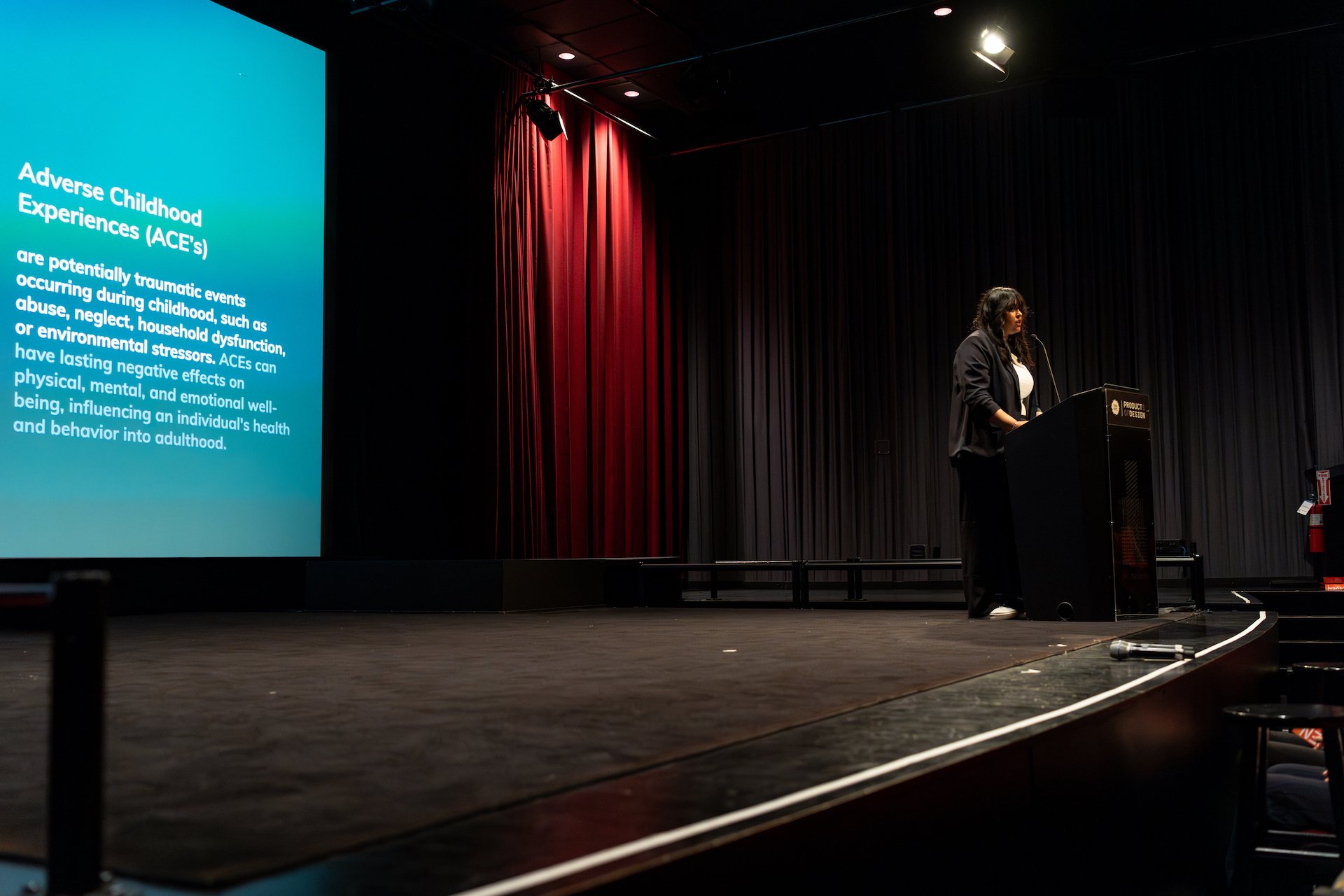
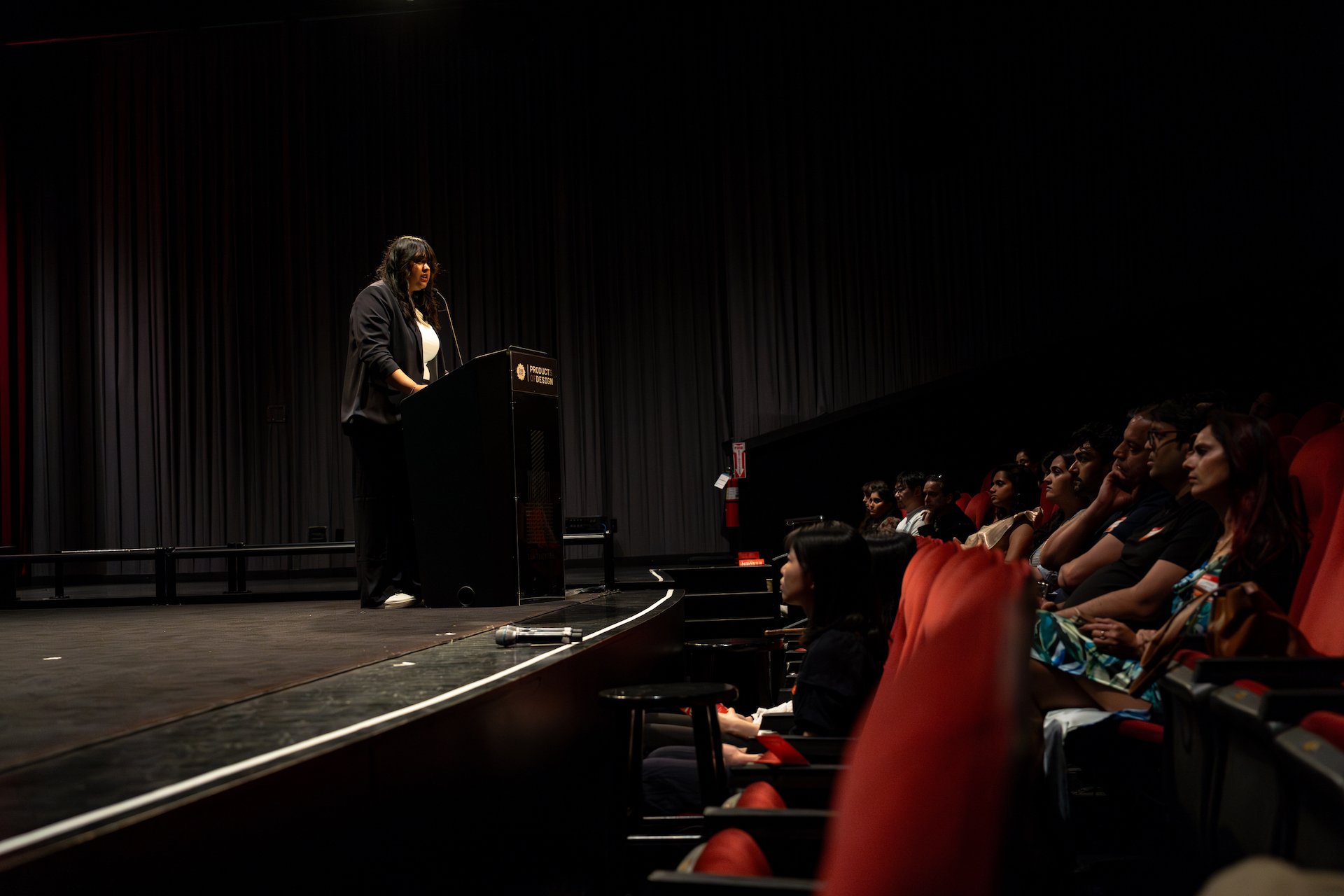
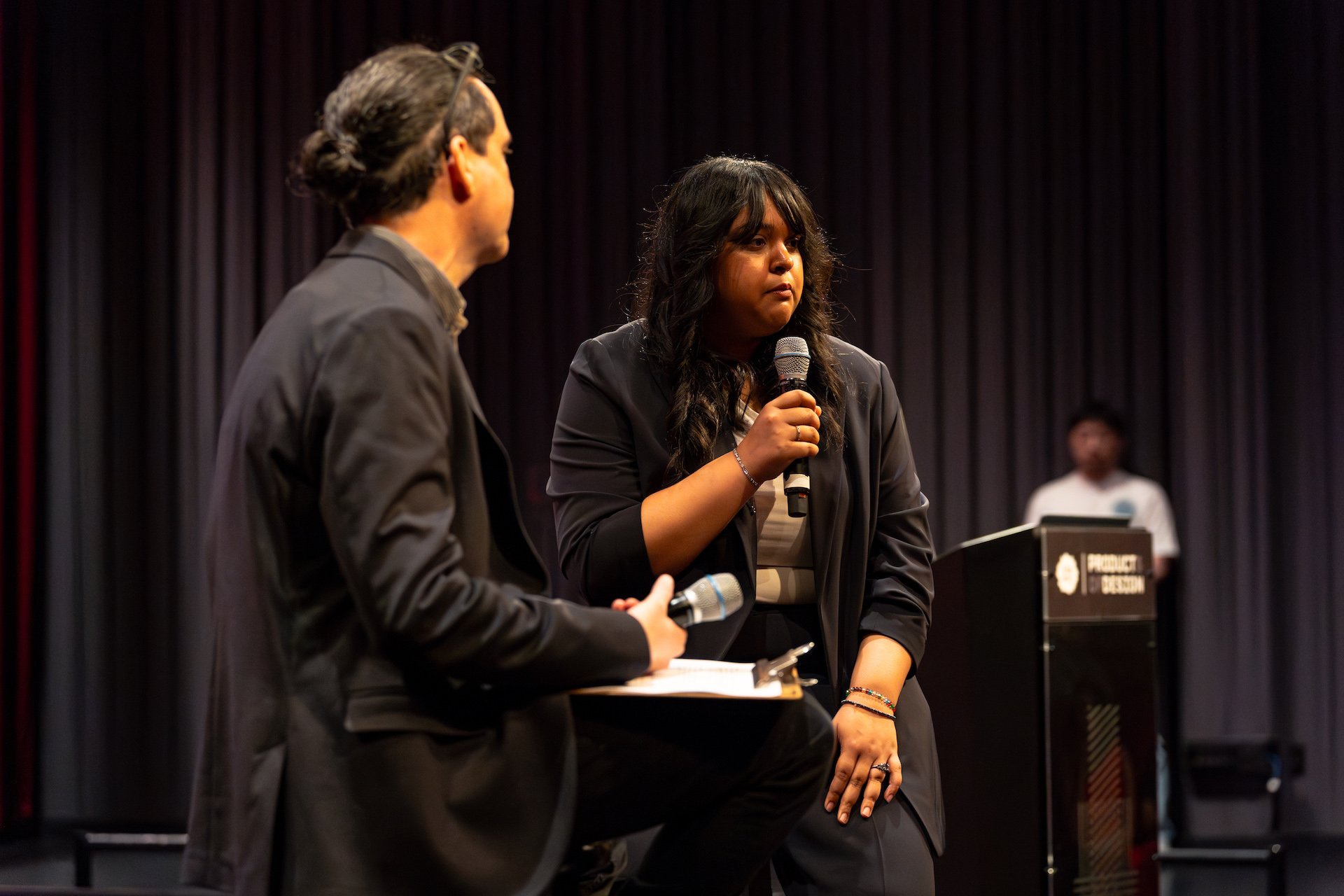
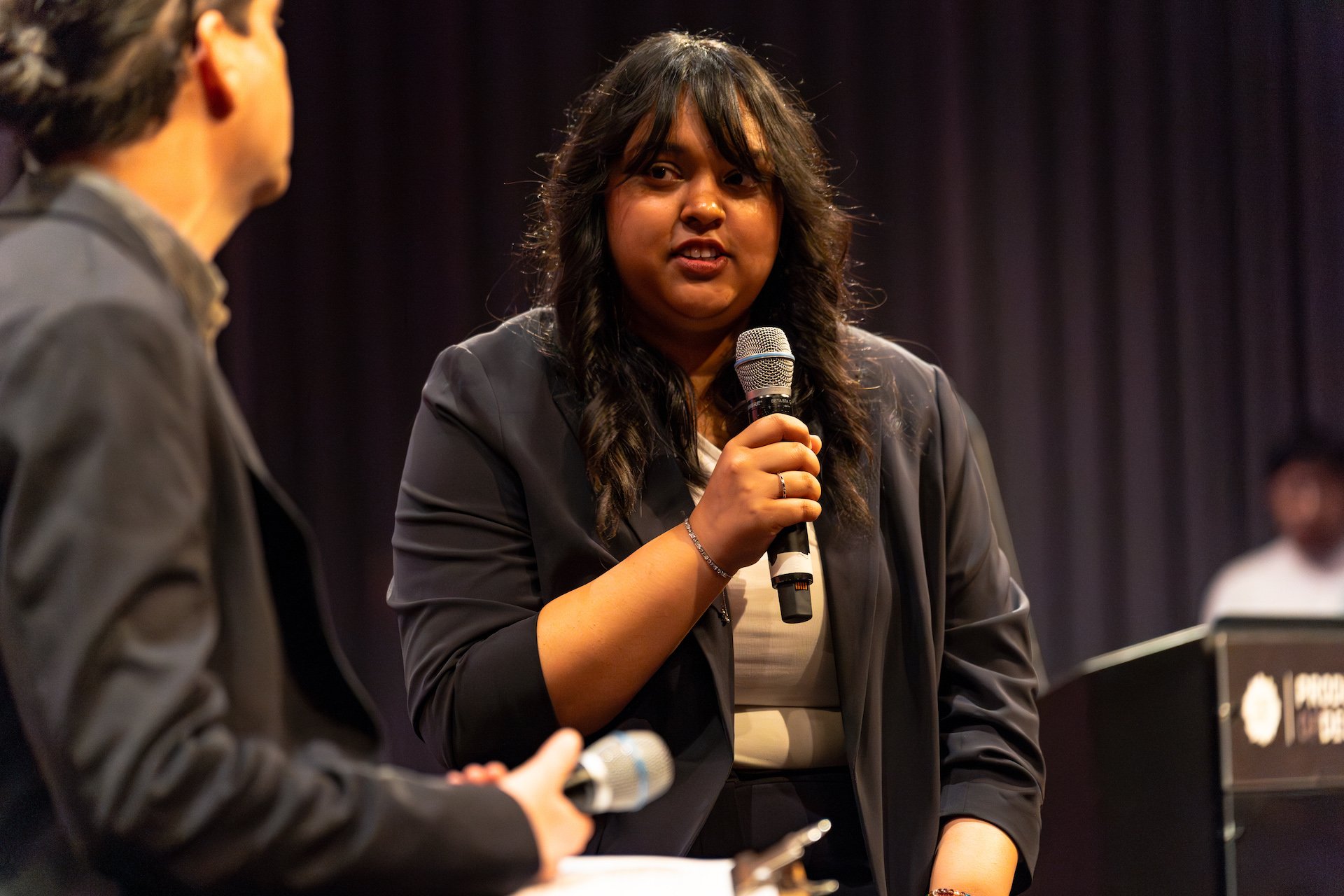
"Slow violence is interesting because it allows you to categorize environmental factors when we have sudden catastrophic events versus the slow decline of agricultural output or the desertification of the land. The decision to move becomes more difficult to fully attribute to just environmental challenges."
- Justin Paul Ware, Urban Planning Consultant to the Humanitarian and Development Practice at UN-Habitat
Hoogli
Designed for children, Hoogli is a soft toy front pack that offers a huggable experience. Its structure simulates the sensation of a warm embrace through its weighted build, delivering a cozy hug whenever needed.
During her initial product explorations, cocreation workshops, and interviews, Rohitha began to imagine an imminent future where constant stress from climate activity hinders human development. When she delved further into how humans deal with stress, she came across research on hugs and how they are an effective form of relief, especially for children. Today, hugs for have become more inaccessible due to reasons such as overworking.
To combat the psychological effects of climate-induced slow violence in children, Rohitha developed Hoogli to help children combat stress in their environments. She sees this product as a speculative design product amidst the possibility of a dystopian future—where the average lifespan has come down to 30 years of age.
Agie
Agie is a playtime interface designed to offer institutional-grade education by harnessing the immediate environment as a platform for immersive learning through augmented reality (AR) and Google Street View while building routines. “While psychological transformation is being catered to, it is not enough,” Rohitha explains. “We need to build literacy on both climate and trusting one's ability to make decisions for themselves, thus making them resilient individuals from a young age.”
Agie offers a daily curriculum with certified content covering topics like civics, applied mathematics, and environmental sciences in bit size information, ensuring engaging and diverse learning experiences. Additionally, daily expeditions provide immersive adventures within your community, enhanced through AR and Google Street View for cultural connectivity.
Agie was developed from an educational magazine service design during the initial explorations called ReStory—a service model similar to Kumon and Scholastic. ReStory featured content in a fun and bite-sized format, crafted with narrative storytelling for easy learning. Although the idea had merit, the shortcomings and business model of a newspaper/workbook as a medium were not feasible for the community it aimed to serve. Agie, being an educational application, can be onboarded as a module in a mobile governance (m-gov) application, making it accessible without the cost of education.
"the ability to make decisions is not solely dependent upon literacy; it's also about being healthy. Housing, basic infrastructure and
physiological health adds weight to mental health, enabling one to make good decisions, and vice versa."
— Molly Rose Kaufman, co-founder of the University of Orange
However, more than literacy is needed to make good decisions. One requires good physiological and mental health. As Molly Rose Molly Rose Kaufman, co-founder of the University of Orange explains, "the ability to make decisions is not solely dependent upon literacy; it's also about being healthy. Housing, basic infrastructure and physiological health adds weight to mental health, enabling one to make good decisions, and vice versa."
PointCare
Rohitha developed PointCare as a healthcare-on-wheels service for rural pockets to combat the physiological effects of slow violence early on. The project was born out of a user interview where the participant said, "We often needed to go to the nearby town or sometimes even to the nearest metropolitan city to access diagnostics or meet with a specialist just for getting diagnosed."
Rohitha discovered that the cost of traveling to a city was more expensive than the cost of treatment itself. This was further confirmed after speaking to other stakeholders such as doctors, diagnosticians, and even administrative officials from the government. PointCare is a mobile health service that offers reliable testing facilities, doctor consultations, and report delivery services in rural areas for every family member, reducing the cost while developing a routine.
SYSTER
Syster is a conversational chatbot plugin that enables needs assessments through everyday conversations for collecting data. When speaking with hospice care specialist Sarada Lingaraju to test the concept of PointCare, Rohitha highlighted a significant challenge: while infrastructure can be provided from outside, historical institutional violence has led these communities to restrict accepting help from individuals who do not belong to their own caste or creed. This made Rohitha think about bridging the gap between disenfranchised communities and institutions with the agency to provide for them.
Families living in rural and marginalized communities often face challenges in accessing basic needs such as clean water, hygiene products, ration, and warm clothing. While adults in these countries try to provide for them, earning a living becomes particularly difficult as their regions are overtaxed with low wages. This is where institutions like not-for-profit social ventures and government cells come into play. However, trust becomes an obstacle, and these institutions sometimes take weeks to months to establish trust through campaigns and needs assessments, among other challenges.
Syster is a conversational chatbot plugin that enables needs assessments through everyday conversations for collecting data. Systers have two interfaces. One is a user interface for people in marginalized communities to have organic conversations with a chatbot. In contrast, agencies are provided with a community management system for supply management and communication, all on WhatsApp.
It works because the number of similar conversations encountered from a given geographical location is clustered and collected into a database. All personal information is masked and made available for different organizations to access and work with.
It works because the number of similar conversations encountered from a given geographical location is clustered and collected into a database. All personal information is masked and made available for different organizations to access and work with.
“The question is, do people in low- and middle-income countries have access to a smartphone and basic data plan?” Rohitha says. “Thanks to COVID, the adoption of smartphones has increased to 81 percent since 2020. It is expected to grow even more in the coming future. However, this is only one consideration that was made.” Syster provides a synchronous coordination system for agencies, logs historical data and auditing patterns, and gathers needs assessments across language barriers.
To learn more about Rohitha Remala’s work, take a look at her projects in more detail at rohremala.com.




